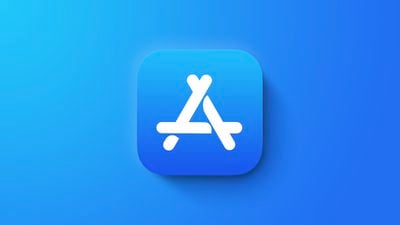U.S. bills that would require major changes to the App Store would ultimately cause consumers to be targeted with malware, ransomware, and scams, Apple's Senior Director of Government Affairs Timothy Powderly said in a letter that was sent today to the Senate Judiciary Committee and that was obtained by MacRumors.

Apple sent the letter as the Judiciary Committee prepares to consider the American Innovation and Choice Online Act and the Open Markets Act, which were first introduced in June 2021. The American Innovation and Choice Online Act will be examined first, and if implemented, would prevent "dominant platforms" from "abusing their gatekeeper power" by favoring their own products and services over those of competitors.
In short, the legislation would enable sideloading, which Apple is stringently against. Sideloading would allow apps and content to be installed on iPhones and iPads through alternate app stores, bypassing Apple's App Store and the privacy measures that Apple has put in place.
Apple says that bills would "hurt competition and discourage innovation" by making it "much harder" to protect the privacy and security of personal devices in the United States.
These bills will reward those who have been irresponsible with users' data and empower bad actors who would target consumers with malware, ransomware, and scams. [...]
The bills put consumers in harm's way because of the real risk of privacy and security breaches. In addition to making privacy and security protections nearly impossible to defend, the bills would actually allow predators and scammers to side-step Apple's privacy and security protections completely. This circumvention is possible because the bills would mandate "sideloading," or the direct installation of software from the internet in a way that circumvents the privacy and security protections Apple has designed, including human review of every app and every app update.
Apple claims it would also be restricted from providing new privacy and security protections under wording that maintains such features must be "necessary" and "narrowly tailored," which the company says is a "nearly insurmountable test" that could prevent customers from having access to a "smart mobile device that provides them with the highest-level of security and privacy protection."
The App Store and Apple's human review process protect customers from "malicious and dangerous code," and consumers would lose that protection should these bills be implemented. In the letter, Apple again highlighted a study that showed iOS devices have 98 percent less malware than Android devices as proof of the effectiveness of the App Store.
Apple says that the bill would be a "big win for those who would profit by collecting even more personal information," and that "millions of Americans" could be deceived into installing unwanted malicious software and would suffer preventable malware attacks. Regulators "should not ignore" the benefits that consumers receive from Apple.
Among other things, the bills would undo much of the progress Congress has made bolstering American competitiveness, rebuilding supply chains, and encouraging domestic manufacturing by instead codifying a structural advantage for foreign competitors in the vibrant technology sector.
At the launch of iPhone in 2007, Steve Jobs said that "we're trying to do two diametrically opposed things at once: provide an advanced and open platform to developers while at the same time protect iPhone users from viruses, malware, privacy attacks, etc. This is no easy task."
Apple is urging the Senate Judiciary Committee not to approve either act that's under consideration in their current form, and the company asks for the opportunity to work with the Committee to find solutions to "address competition concerns while protecting consumers' privacy and security."




















